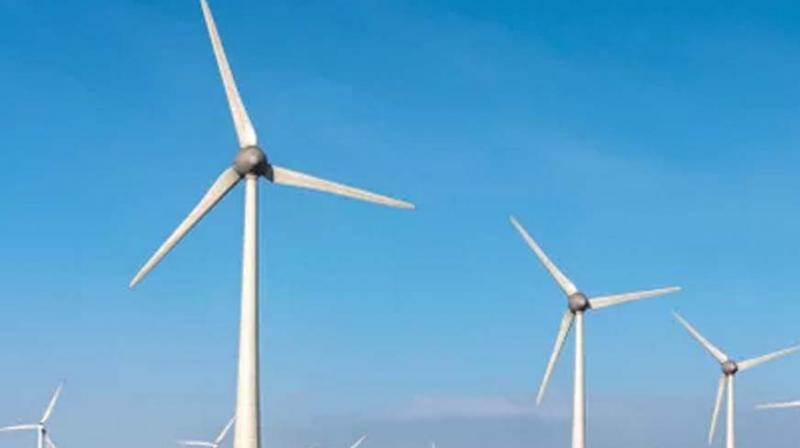Kerala must catch'em young
Energy conservation and management and usage of renewable energy sources are the prime area of focus.

Energy is evolving as one of the most significant factors that determine the future of a society. A study has come up with the finding that Kerala woefully lacks on it when it comes to the future work force. It's time we reoriented some of our priorities and addressed the issue.
An online survey study on energy literacy done last year among the future workforce of Kerala which included arts & science students, engineering students and student teachers came up with some startling results. The overall average energy literacy score was found to be 49.7 out of a maximum score of 100. Among them, the student teachers had the least energy literacy score of 45.86. The results of the survey also showed a low level of energy literacy in the surveyed population on the topic of source and type of energy which is mainly related to renewable energy resources.
An analysis of the future workforce with respect to their attitude towards energy resulted in four different personas each with varying levels of engagement and differing perceptions of energy. The analysis shows that at present we have a very small group which gives high priority to energy conservation and use, whom we can call as 'agents of change'.
The maximum number of people belong to the group which sees the significance of energy but are unsure about their role as changing agent. They are the 'mindfulwanderers'.
There is another group, called 'big talkers',which speaks a lot about energy conservation and management but not ready to conserve by compromising their personal needs. Finally, the 'indifferent onlooker' who is least concerned about energy conservation and use. Statistics shows that 'mindful wanderers' are the biggest group among the student community where as indifferent onlookers are the least.
This result shows that our student society has positive attitude towards energy conservation and management; what they lack is the awareness or understanding towards energy. If we can give a broader understanding of the same, then it could lead to transformative action.
The troubling results of the survey reveal a dangerous trend in our society. Though energy is one of the world's largest industries and we're constantly debating energy issues, our future workforce is woefully energy illiterate.
India, too, is moving towards a renewable energy economy. We need a society which is energy conscious. Being an energy consumer, our understanding of energy-related issues helps us to make our decisions about energy sources, costs, tradeoffs, uses, and suggestions on energy policy. Each of us, especially the present work force of our country, is responsible for tomorrow's national energy policy. Its then the question arises if our future workforce energy is literate enough to think in terms of the economic and environmental impacts of energy production and use.
It is not so easy to answer the question as it hinges on several preceding questions like what exactly is energy literacy? What does it seek to achieve? What resources are necessary to achieve enough energy literacy? And finally, does energy literacy result in desirable behavioral change?
Energy literacy, as defined by the US department of energy, is "an understanding of the nature and role of energy in the world and daily lives accompanied by the ability to apply this understanding to answer questions and solve problems." Energy literacy extends beyond simple scientific knowledge. It includes both a clear understanding of energy systems and an ability and willingness to use that knowledge. An energy literate person can not only solve daily household problems, but with further training, he or she can also join a growing energy workforce.
An energy literate student never fails to switch off the light after use; he never wastes even a single drop of water and will use the natural resources in the most appropriate way. In the nut shell, energy literacy is making energy visible to people, allowing us to see all the ways we use energy and help us reduce it sensibly, in ways that improve our life and our environment.
Today, energy is a necessary topic for interdisciplinary learning and workforce development. The whole world is dreaming and working hard for a renewable-dominant future and is developing sustainable alternatives to conventional energy sources. Energy conservation and management and usage of renewable energy sources are the prime area of focus.
The most significant link that could evolve an energy literate society is education. We should develop energy education programmes which ensure that its educational objectives align with the criteria for energy literacy, which include not only cognitive aspects, but also affective and behavioural characteristics. For that, a shift from entrenched disciplinary specialisation to pedagogies rooted in authentic, experiential learning and real-world issues are to be developed and implemented.
Jan De Waters and Susan Powers of Clarkson University have proved that project-oriented students demonstrated high educational gains on both scientific and practical topics. The prejudiced notion of perceiving energy as a science topic should be replaced. It should be perceived from its socio- scientific aspect. We know that a nation's energy challenges are intimately intertwined with environmental, economic, health, and social challenges. The citizens are to be made aware of that and should be equipped with the basic knowledge to foster an informed discussion.
We should emphasise teaching energy topics throughout education, which is vital to establishing a strong foundation for future decisions and in fostering sustainable society. Through desirable energy education programmes based on experiential learning approaches, we can transform the entire student community to the agents of change. They should be equipped with the best scientific information available to help them make the crucial decisions about climate and energy policy that they will have to make. An 'agent of change' working in any sector can influence the society around him, which gradually leads to an energy literate society.
(The writer is Divya C. Senan, Fulbright Nehru postdoctoral fellow at University of Alabama, US.)

